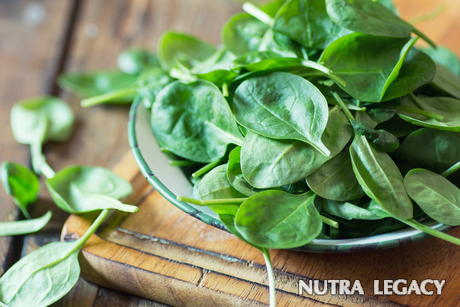Benefits of Natural Iron Supplement to Hemoglobin Level

- Iron is one of the trace minerals needed by our bodies to function efficiently and stay healthy. Hemoglobin is found in red blood cells and is a protein that is needed to carry oxygen to all areas of your body.
- Eating a diet rich in iron can help your hemoglobin level stay high enough so that all the cells in your body get the oxygen they need to function properly and efficiently.
Iron is one of the trace minerals needed by our bodies to function efficiently and stay healthy. What benefits does iron have to the hemoglobin in your blood and why is it crucial to get enough iron? Hemoglobin is found in red blood cells and is a protein that is needed to carry oxygen to all areas of your body. Every cell in your body needs oxygen to survive and work. If you do not have enough hemoglobin in your blood you will experience weakness, fatigue, and other like symptoms. Without iron hemoglobin cannot be created.
Anemia can occur as a result of an iron deficiency in your body. With anemia, iron is not metabolized in sufficient amounts, so your hemoglobin level becomes low and your red blood cells are not able to carry an adequate amount of oxygen to tissues and organs throughout the body. This causes your cells to slow down. If your iron and hemoglobin levels fall too low, you can suffer serious health problems, up to, and including death. Iron deficiency is the most common nutritional deficiency in the world and is worse in third world countries where people do not always have access to iron-fortified foods such as red meat.
Eating a diet rich in iron can help your hemoglobin level stay high enough so that all the cells in your body get the oxygen they need to function properly and efficiently. Some foods are naturally rich in iron, while others may provide little or in forms that are harder for your body to absorb.
Iron comes in two distinct types: heme iron and non-heme iron. Non-heme iron is found in many plants, nuts, beans, and grains, but this iron is not absorbed as easily as heme iron. Heme iron is found in such foods as poultry, pork, beef, and fish. This type of iron is easily absorbed by your body and is more effective. Eating both types of iron together in a meal will help with non-heme iron absorption.
There are many foods you can eat if you need more iron in your diet. Spinach, ready-to eat-cereals, watermelon, potatoes, beef, poultry, fish, oysters, shrimp, rice, broccoli, peas, and others are all iron-rich foods. Some foods will actually decrease the ability of your body to absorb iron. You should avoid these when eating iron-rich foods. These iron blockers include coffee, tea, other caffeinated beverages, an excess of high-fiber foods, foods high in calcium, like milk and cheese, chocolate, and some medicines including phosphates and antacids.
Iron is necessary for your body to make the protein hemoglobin. If you do not get enough iron your hemoglobin will be low. This means less oxygen will be transported to cells in your body that need it. Without adequate oxygen, your cells can age quicker, slow down, or even die off. The required amount of iron for adults is 14mg per day, but if you have a low iron level it may take much more to raise this level.
Your body cannot store protein. Instead, your body makes it on a “needed” basis with the building blocks at hand. Not getting enough iron means that the hemoglobin protein cannot be created as efficiently. This will affect every single cell in your body.
The information supplied in this article is not to be considered as medical advice and is for educational purposes only.
|
 20 Oct 2008 20 Oct 2008 |
